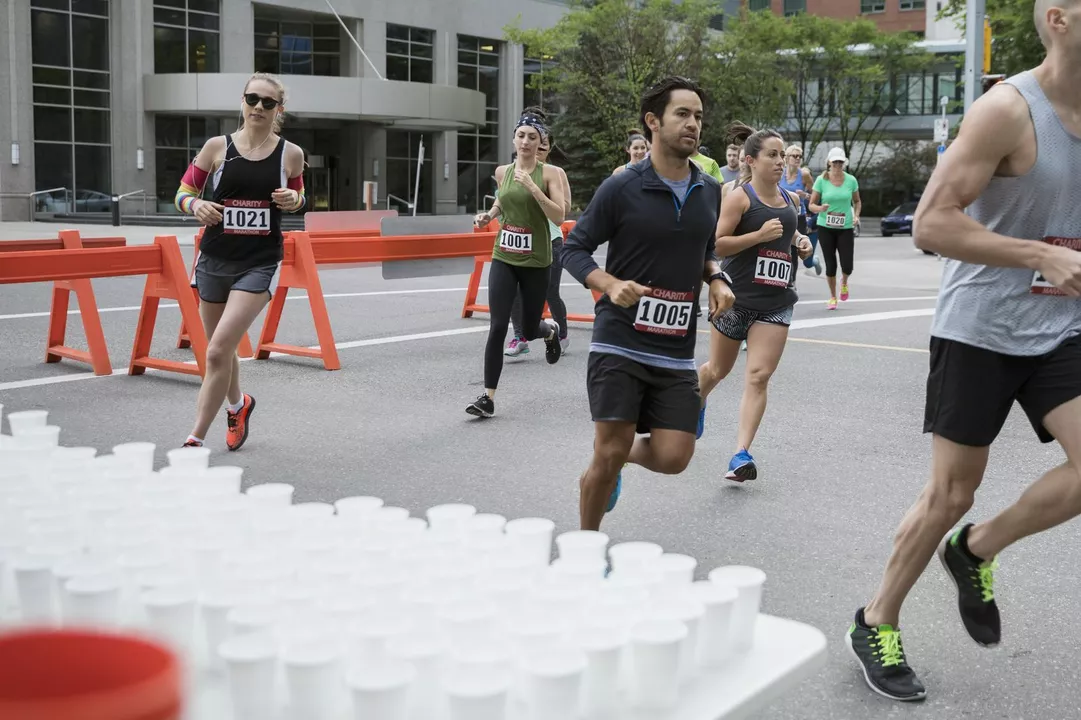Eating: How the Right Food Fuels Sports Performance
When talking about Eating, the act of taking in food and drink to support the body. Also known as food intake, it directly impacts energy levels, recovery speed, and injury risk for anyone who runs, swims, or kicks a ball.
Another key piece of the puzzle is Nutrition, the science of choosing the right nutrients to power workouts and aid healing. Good dietary planning means matching carbs, protein, and fats to the demands of a 3‑mile run, a high‑intensity soccer match, or a long swim session. For example, a runner who burns roughly 350 calories in 30 minutes can replenish with a mix of simple carbs and protein to boost muscle repair.
Why Calories Matter for Every Athlete
Understanding Calories, the energy units measured in food that fuel physical activity is essential. If you consume fewer calories than you burn, you risk fatigue and slower recovery; too many and you may gain unwanted weight that strains joints, especially when pounding concrete with the wrong shoes. A balanced calorie intake, adjusted for training intensity, helps maintain optimal body composition and keeps blood pressure stable for those who jog with a health condition.
Sports performance also depends on Hydration, the amount of fluids you drink before, during, and after exercise. Even mild dehydration can cut your sprint speed and increase perceived effort. A simple rule: drink 500 ml of water two hours before a session and sip regularly during play. This habit pairs well with proper eating, ensuring electrolytes and nutrients move smoothly through the bloodstream.
When you plan meals, think about timing as much as content. Eating a carbohydrate‑rich snack 30‑60 minutes before a soccer game gives quick fuel for bursts of speed, while a protein‑focused dinner after swimming supports muscle rebuilding. These timing tricks create a natural chain: eating influences nutrition, which shapes calorie balance, which drives performance.
Injury prevention ties back to food choices, too. Omega‑3 fatty acids from fish or flaxseed reduce inflammation, which can help a runner avoid shin splints or a swimmer stave off shoulder pain. Antioxidant‑rich berries combat oxidative stress caused by high‑intensity workouts, meaning you bounce back faster after a tough match.
For athletes on a budget, simple swaps work wonders. Swap pricey whey protein for a boiled egg and a handful of nuts; replace sugary sports drinks with a homemade electrolyte mix of water, a pinch of sea salt, and a squeeze of orange. These cheap options keep your eating plan sustainable over a whole season.
Different sports have unique dietary quirks. Long‑distance runners often favour easy‑to‑digest carbs like bananas or rice cakes, while swimmers benefit from slightly higher protein to support upper‑body endurance. Soccer players need a mix of carbs for quick sprints and protein for recovery after a 90‑minute battle on the pitch.
All these ideas connect back to the core theme of this page: proper eating shapes every aspect of athletic life. Below you’ll find a collection of articles that dig deeper into match‑day meals, calorie calculators, shoe recommendations for concrete runs, and more. Whether you’re a beginner looking for basic tips or a seasoned player fine‑tuning your diet, these posts will give you clear, actionable advice to fuel your next performance.
